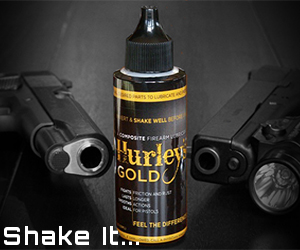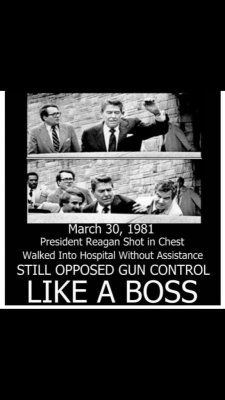This is an excellent article regarding a post-Heller case Otis McDonald vs. City of Chicago.
High court to define reach of gun-control laws - USATODAY.com
High court to define reach of gun-control laws - USATODAY.com
High court to define reach of gun-control laws
By Joan Biskupic, USA TODAY
WASHINGTON — In 2008, when national gun rights advocates were looking for residents to challenge Chicago's ban on handguns, Otis McDonald was in effect looking for them. McDonald, 76, says he had seen his neighborhood on the far South Side of Chicago turn from bad to worse over the years with "gangbangers and drug dealers."
"My wife and I are here alone all the time now," says McDonald, a retired maintenance engineer, who with his wife, Laura, reared three children. "I've got burglar alarms hooked into the police department. I have a shotgun, but a handgun (would be) more handy for me to handle."
McDonald had driven down to Springfield, Ill., a few years earlier for an Illinois State Rifle Association rally, to support the push for looser gun laws in Chicago. It was the beginning of a bond with gun rights activists that led to McDonald v. City of Chicago, a dispute that will be argued before the Supreme Court on Tuesday and could reshape firearms regulations nationwide.
CASE LOG: Major cases facing the Supreme Court
The case marks the second round of high-stakes litigation over the breadth of the Second Amendment — and will likely have wider impact nationwide than the first. In June 2008, the justices struck down a Washington, D.C., handgun ban and declared for the first time that the Second Amendment covers an individual right to keep and bear arms.
The new question is whether the 2008 decision also applies to cities and states, or only to laws in the federal government and its enclaves, such as Washington. It sets up another major constitutional question with ramifications for scores of mostly urban gun regulations.
Chicago defends the 1982 law that stops McDonald and other residents from keeping handguns in their homes, arguing that firearms violence is so serious that the court should not extend the 2008 landmark ruling to states.
Benna Ruth Solomon, the city attorney taking the lead on the new case, says in her brief that states and cities should be able to decide for their own jurisdictions how to reduce crime and also prevent accidental injuries caused by firearms.
The Brady Center to Prevent Gun Violence, the International Association of Chiefs of Police and two other police groups have joined in a "friend of the court" brief cautioning the justices about how their decision could affect gun regulations nationwide.
"Courts already have been grappling with over 190 Second Amendment challenges brought against firearms laws and prosecutions in the year and a half since" the justices' ruling in District of Columbia v. Heller, the groups say in their brief.
They say lawsuits have targeted, among other regulations, those barring loaded guns on public streets and the possession of guns on government property.
The court said the Second Amendment protects an individual's right to keep guns in the home for self-defense but did not preclude other long-standing laws, such as those that ban felons from having firearms.
The overriding question in the Chicago case: Does the Second Amendment grant a fundamental right comparable to, say, the First Amendment's guarantee of free speech and the Fourth Amendment's shield against unreasonable searches and seizures? Or, is the Second Amendment in a class of its own because it involves a right to possess a weapon designed to kill or cause injury?
McDonald's lawyers, backed by 38 states, argue the Second Amendment should protect people against city and state regulation because the right to bear arms is "fundamental to the American scheme of justice."
The Chicago School Board, backing the city, counters: "We tolerate few restrictions on the right to free speech because of its salutary effects, and because 'sticks and stones may break my bones but words can never hurt me,' as the children's rhyme goes. Guns, on the other hand, will kill you."
'I am doing this for me'
The case against Chicago's handgun law began while the groundbreaking District of Columbia v. Heller was in the works. Virginia lawyer Alan Gura, who took the lead on the 2008 case, was looking for residents to challenge the Chicago law and offer a broader test of the Second Amendment.
"I said the Lord is hearing my prayer," recalls McDonald of meeting Gura and other gun rights lawyers in early 2008. "They never pressed me. I'm not doing this for them. I am doing this for me."
McDonald had been trying for years to protect himself and other seniors in the deteriorating neighborhood.
Crime in McDonald's area has been steadily rising, although it is mainly property crime rather than violent assaults, according to Chicago police district statistics. Burglaries and thefts are the most common types of crimes in the district. There were 881 burglaries reported in 2006, 1,109 in 2007 and 1,215 in 2008, the most recent annual report available. There were 17 murders in 2008, a number that has held steady since 2006.
McDonald says he often challenged young drug dealers as they hung around idling cars and warned that he would alert the police: "They'd just call me, 'You old gray-headed so-and-so' and say they'd get me."
McDonald took the threats seriously.
When he first got involved with the Illinois State Rifle Association, he was a rare voice from his South Side neighborhood.
"I was probably the only black at that first meeting" in Springfield, McDonald says. "I met a lot of people. Everybody was friendly." The Army veteran adds that "it was like a bunch of old GIs getting together. ... I liked their message."
The other three Chicagoans in the lawsuit are Adam Orlov and Colleen and David Lawson. The Second Amendment Foundation and Illinois State Rifle Association are also challengers to the Chicago law. (A separate challenge to a handgun ban in the Village of Oak Park, a Chicago suburb, is also part of the Supreme Court case.)
Colleen Lawson, 51, says that when she was young, before the city passed the 1982 ban, many people kept handguns in the home to protect themselves.
"My grandmother carried a handgun in her apron pocket when I was growing up," she says.
After an attempted burglary in 2006 at the home she and her husband, David, own on the city's North Side, Lawson says she wanted to keep a handgun in the house. She says that would be easier to handle and give her more confidence than an "unwieldy" shotgun, which is legal in Chicago if properly registered.
On June 26, 2008, the day the Supreme Court invalidated the Washington ban, McDonald, the Lawsons and Orlov were poised to file their lawsuit against Chicago.
They claimed the new ruling on the Second Amendment meant they should be able to register handguns in the city.
Lower U.S. courts rejected the challenge and sided with Chicago.
The U.S. Court of Appeals for the 7th Circuit, which covers Illinois, Indiana and Wisconsin, stressed that the Supreme Court held more than a century ago that the Second Amendment applies only to the federal government. The appeals court said the 2008 Supreme Court ruling did not change that.
Among the groups backing McDonald and the other residents is the NRA, which won time to argue separately before the justices on the gun rights side.
"The case comes down to whether people in cities like Chicago are going to have the same rights as people in Washington, D.C.," says Paul Clement, a former U.S. solicitor general under President George W. Bush who will represent the NRA during arguments.
"It would be an odd constitutional situation if only people in enclaves like Washington had these rights. If the NRA side of this case doesn't prevail in this case, then Heller wasn't that big of a deal — and people thought Heller was a big deal."
Chicago city lawyers say states and cities should be able to work out their own solutions to gun crime. Solomon highlights the city's problem in her brief: "Handguns were used in 402 of 412 firearm homicides in Chicago in 2008. Handguns are used to kill in the United States more than all other weapons — firearms and otherwise — combined."
In 2008, the city reported 510 murders, up from 445 in 2007.
Siding with Chicago are three states with populous urban centers: Illinois, Maryland and New Jersey.
They contend that if McDonald wins, "nearly every firearms law will become the subject of a constitutional challenge, and even in cases where the law ultimately survives, its defense will be costly and time-consuming."
On the other side, Texas leads 38 states in saying the Second Amendment should apply beyond Washington. They note that 44 state constitutions include a right to keep and bear arms.
A test for Sotomayor
McDonald v. City of Chicago is shaping up to be one of the most consequential cases of the term.
Fifty-one "friend of court" briefs have been filed by groups on both sides of the case. (In 2008, when the justices directly confronted the Second Amendment for the first time, 67 such briefs were filed.)
The court's decision in Heller, which reinforced the popular notion in American culture of an individual right to bear arms, was decided on an ideologically split vote that has become a defining feature of the current bench under Chief Justice John Roberts.
About the time that case was argued, a USA TODAY/Gallup Poll showed that nearly three out of four Americans believed the Second Amendment covered an individual right to own a firearm.
Justice Antonin Scalia wrote for the majority and was joined by fellow conservatives Roberts, Anthony Kennedy, Clarence Thomas and Samuel Alito. Liberals John Paul Stevens, David Souter, Ruth Bader Ginsburg and Stephen Breyer dissented.
Justice Sonia Sotomayor succeeded Souter in 2009. Earlier that year, Sotomayor, a judge on the New York-based U.S. appeals court, had been part of a three-judge panel that found the Second Amendment did not apply to the states.
That decision, which rejected a challenge to a New York ban on certain weapons used in martial arts, provoked some gun groups, including the NRA, to protest her high-court nomination.
When she testified before the Senate Judiciary Committee last July, Sotomayor observed that the Supreme Court had left open in Heller the question of whether the Second Amendment covers the states and said that issue needed to be resolved before appeals courts weighed in.
She said her panel decided the martial-arts case on the basis of established high-court precedent and that she had a "completely open mind" on whether the Supreme Court should extend the Second Amendment to the states.
On Chicago's dicey far South Side, McDonald contends people in cities beyond Washington should have the same Second Amendment protections as people in the nation's capital.
"Why should we have to suffer with all the laws passed down by the states and the cities," he says, "while the people who are doing all this (violence) are getting guns and the police can't stop them?"




 atriot:
atriot:



